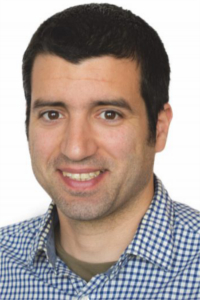Objectives
Abstract: In this talk I will summarize our recent and ongoing work analysing large pharmaco-genomic screenings in cancer, that provide rich information about alterations in tumours that confer drug sensitivity or resistance. Integration of this data with prior knowledge on signaling pathways and transcription factors provides biomarkers and offer hypotheses for novel combination therapies. Multi-task learning combining these features and drugs’ information leads to further insights into drug efficacy. I will also describe the insights gained when addressing this problem in a crowdsourced manner, by posing a challenge to the scientific community. This was performed in the context of the DREAM Challenges, and I will present this initiative and its infrastructure by means of containerized model submissions, that allows us to use sensitive data for the challenges. An important message from the challenge and our own results is that that prediction of drug efficacy is far from accurate, implying important limitations for personalised medicine. An arguably under-appreciated aspect that deserves further attention is the dynamics of signaling networks and how they response to perturbations such as drug treatment. I will show how cell-specific logic models, trained with measurements upon perturbations, can provides new biomarkers and treatment opportunities not noticeable by static molecular characterisation. Finally, I will show how, using novel microfluidics-based technologies, this approach can also be applied directly to tumor biopsies.
 Short Bio: Dr. Julio Sáez-Rodríguez is since June 2018 Professor of Medical Bioinformatics and Data Analysis at the Faculty of Medicine of the University of Heidelberg. He is an affiliated member of Sage-Bionetworks and a director of the DREAM challenges to catalyze the development of methods in systems biology, and the scientific coordinator of the EU-H2020 PrECISE (Personalized engine for Cancer integrative study and evaluation) consortium. He obtained his PhD in 2007 at the University of Magdeburg and the Max-Planck-Institute. He was a postdoctoral fellow at Harvard Medical School and M.I.T., and a Scientific Coordinator of the NIH-NIGMS Cell Decision Process Center. From 2010 until 2015 he was a group leader at EMBL-EBI with a joint appointment in the EMBL Genome Biology Unit in Heidelberg, as well as a senior fellow at Wolfson College (Cambridge). From 2015 to 2018 he was professor of Computational Biomedicine at the RWTH Aachen.
Short Bio: Dr. Julio Sáez-Rodríguez is since June 2018 Professor of Medical Bioinformatics and Data Analysis at the Faculty of Medicine of the University of Heidelberg. He is an affiliated member of Sage-Bionetworks and a director of the DREAM challenges to catalyze the development of methods in systems biology, and the scientific coordinator of the EU-H2020 PrECISE (Personalized engine for Cancer integrative study and evaluation) consortium. He obtained his PhD in 2007 at the University of Magdeburg and the Max-Planck-Institute. He was a postdoctoral fellow at Harvard Medical School and M.I.T., and a Scientific Coordinator of the NIH-NIGMS Cell Decision Process Center. From 2010 until 2015 he was a group leader at EMBL-EBI with a joint appointment in the EMBL Genome Biology Unit in Heidelberg, as well as a senior fellow at Wolfson College (Cambridge). From 2015 to 2018 he was professor of Computational Biomedicine at the RWTH Aachen.
His group develops and applies computational methods to acquire a functional understanding of signaling networks and their deregulation in disease, and to apply this knowledge to develop novel therapeutics. To this end, his group collaborates closely with experimental groups and pharmaceutical companies. More information at www.Sáezlab.org.
